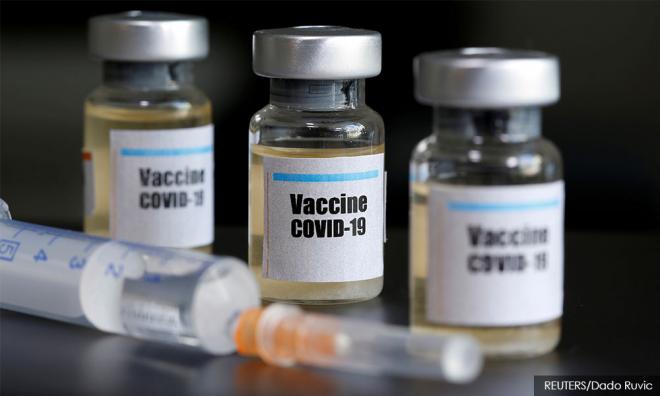
Published by Malay Mail, image from Malaysiakini.
Despite being proactive in demonstrating its capabilities and signalling that it is keen to participate in clinical trials of Covid-19 vaccine, late-stage clinical trials are being conducted elsewhere, leaving Malaysia in the lurch.
Our country has been pushing for access to Covid-19 vaccines early on, especially with regards to being included in clinical trials but so far it is other countries that had clinched the venue for the trial.
On August 11 for example, China’s Sinovac Biotech Ltd launched Phase 3 clinical trials of a Covid-19 vaccine in Indonesia. Other countries involved in late-stage clinical trials include Brazil, United Arab Emirates, and Saudi Arabia.
Malaysia is a unique avenue for clinical trials due to its advantageous demographics as well as the availability of highly trained medical professionals and infrastructure.
Clinical trials in Malaysia can provide access to a wide multi-racial sampling which may prove beneficial in extrapolating efficacies to other races in other regions. Other attractive aspects of Malaysia are its central geographic location within Asia, and the relatively low capital and operational costs.
Also, Malaysia’s successful handling of the Covid-19 pandemic is exemplary and is reflective of Malaysia’s highly competent leadership in public health safety, its skilled and sizable health-care professionals and labour force. Furthermore, its past involvement in clinical trials is a testament to its capability in conducting high-level research.
In March, Malaysia collaborated with the World Health Organization (WHO) in a “Solidarity Trial”, to test several drugs globally in treating Covid-19 patients.
By early April, there was news of a joint clinical trial to investigate the effectiveness of an arthritis medicine to treat severe coronavirus cases which involved Malaya Medical Centre (UMMC) and three Ministry of Health (MOH) hospitals.
Also, in April the Minister of Science, Technology and Innovation (MOSTI), Khairy Jamaluddin said a cross-ministerial collaboration between MOSTI, MOH, as well as the Foreign Ministry was established to ensure Malaysia has access to vaccine and medicines for Covid-19 through the use of science-diplomacy.
He also announced the interest from a university from China to be MOSTI’s strategic partner in developing Covid-19 vaccine through clinical research and tests by the end of April in Malaysia.
Since then, Malaysia has been offering to assist other nations in undertaking clinical trials. Strong participation in this global effort should assist in Malaysia being a prioritised recipient once a viable vaccine is found.
As mentioned by Health Ministry director-general Datuk Dr Noor Hisham, the government has been in discussion with several countries that can produce a vaccine against the coronavirus, and that Malaysia can contribute in the manufacturing of vaccines.
Internally, Malaysia is also pursuing its own vaccine development programmes. Health Minister Dr Adham Baba announced in August the development of an inactivated vaccine against the coronavirus where Malaysia’s Institute of Medical Research (IMR) is leading the research.
Despite these clear advantages, active involvement in Covid-19-related initiatives, and efforts by various parties, Malaysia has yet to be selected as a hub for Covid-19 vaccine clinical trials.
Why is this so?
One plausible explanation is in taking a stance on global access to affordable vaccines and treatments, Malaysia may have indirectly touched on the sensitive topic of how intellectual property (IP) rights can threaten ease of access to life-saving treatments.
There may be other past events that have left a sour taste on both innovative pharmaceutical industry players and Malaysian public health officials which may need to be revisited for a change in tune by both parties in future talks.
As revealed by Datuk Dr Noor Hisham, unsuccessful price negotiations in 2017 with Gilead Sciences, an American biopharmaceutical company, forced Malaysia to use compulsory licensing for the Hepatitis C drug sofosbuvir.
In May 2020, the Ministry of Health revealed in that Malaysia has been excluded from a voluntary licencing deal to receive remdesivir, the drug (which is also developed by Gilead Sciences) that is undergoing clinical trials as a possible Covid-19 treatment. One can reasonably assume that the two events are correlated.
Pharmaceutical companies and drug makers need to understand that the government’s goal is to ensure that critical treatments reach as many people as possible and work within its resource capacity.
Negotiation failures due to strict stance on prices that limits a country’s ability to purchase life-saving vaccines and treatments can be equally frustrating to public health decision-makers.
Making treatments accessible to the public should be a mutual agenda yet both sides of the table would have very different views on issues such as access, IP, prices, budgetary constraints and a host of other matters. What is clear is that the two sides need to know each other’s perspectives better, and have frequent and transparent dialogue in order to find an amicable solution.
Clinical research not only promotes the discovery of new knowledge and new treatments, but it can also help improve local capacities in research and increase the level of health care capabilities.
These can lead to better infrastructure and help improve the economy. This is especially true in the backdrop of the Covid-19 pandemic and the serious impact it has on the various aspects of our society.
Successful cooperation between the Malaysian government and the industry players, and a supportive ecosystem that protects both the needs of the people and the interest of innovative drug makers should pave the way for Malaysia to be the preferred hub for clinicals trials.
Internally, Malaysia is also pursuing its own vaccine development programmes. Health Minister Dr Adham Baba announced in August the development of an inactivated vaccine against the coronavirus where Malaysia’s Institute of Medical Research (IMR) is leading the research.
Meanwhile Deputy DG of MOH, Dr Hishamshah also raised the idea of short-term joint ventures with other countries developing Covid-19 vaccines with the hope that Malaysia can take part in early trials.
Ahmad Ameen Mohd Kamal is Head of Science and Technology at EMIR Research, an independent think tank focused on strategic policy recommendations based on rigorous research.

